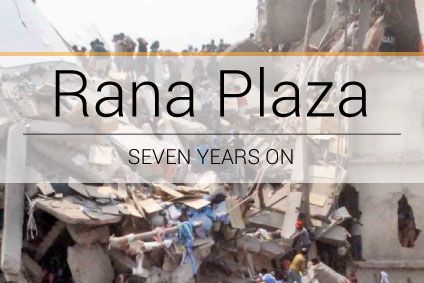
Seven years on from Bangladesh’s Rana Plaza factory collapse, a worker rights group warns the current Covid-19 pandemic is undermining ongoing struggles in social protection, living wages, freedom to organise and factory safety.
The garment industry’s deadliest factory incident on 24 April 2013 killed around 1,134 workers, while a further 2,520 were seriously injured.
“Over the past seven years, numerous industry stake holders have worked diligently to end financial insecurity for workers injured on the job and for the families of those killed at work by establishing an employment injury insurance system in Bangladesh, and it is of paramount importance that this system becomes available to all workers as soon as possible,” the Clean Clothes Campaign says.
“The current crisis should serve as a further incentive to create strong social protection floors, consistent with ILO standards on sickness benefits, unemployment, and health insurance. Such systems can only be established with cost-sharing built into future garment supply chains.”
CCC says it is of “paramount importance” that hard-fought labour protections are not rolled back.
The Rana Plaza disaster led the launch of two fire and building safety initiatives – the Accord on Fire and Building Safety in Bangladesh, and the Alliance for Bangladesh Worker Safety – tasked with inspecting and overseeing remediation work at factories used to supply the world’s leading fashion brands and retailers.

US Tariffs are shifting - will you react or anticipate?
Don’t let policy changes catch you off guard. Stay proactive with real-time data and expert analysis.
By GlobalDataHowever in 2019, a legal conflict ended with an agreement to replace the Accord with a national RMG Sustainability Council (RSC), with participation from the Bangladesh Garment Manufacturers and Exporter Association (BGMEA), which represents factory owners.
Labour rights organisations in and outside Bangladesh have repeatedly called for the Accord to complete outstanding work before any new programme takes effect.
“It is of paramount importance that the process to come to an international legally binding agreement covering brands (financial) commitment to remediation is finished and the Accord’s work is completed before the RSC will start working.”
However, with the onset of the global pandemic crisis, CCC says negotiations have ground to a halt and the Accord has had to suspend operations. “Without these safeguards to ensure the RSC’s effectiveness, the RSC will be indistinguishable from the voluntary initiatives that failed to prevent the Rana Plaza collapse,” it says.
“The unchanged power imbalance in supply chains since the Rana Plaza collapse has been painfully exposed by the Covid-19 pandemic. Since the countrywide lockdown [in Bangladesh] on 25 March, millions of workers are struggling with loss of jobs and non-payments of wages or are instead forced to work despite the global recommendations on social distancing and left without clarity about the industry’s measures.”
The CCC says the BGMEA’s push to reopen all factories could put workers’ health and safety at risk.
“It is vital that factory owners start taking full responsibility for their workers’ health and well-being by ensuring workers receive their full wages during the crisis, through the digital systems provided by government, ending the retrenchment of workers and reinstating workers dismissed at the onset of the crisis and, once safe return to work is enabled, providing sufficient protection and paid sick leave.
It adds: “Brands and retailers have thus far refrained from taking responsibility for these workers’ livelihoods or for mitigating the reckless behaviour of these factory owners. Instead, by cancelling their orders and refusing to place new ones they have left many factories in precarious financial positions, without the financial means to pay their workers their wages for months to come.”
This week, the Bangladesh government warned it will take action against garment factories that do not pay their staff during the Covid-19 lockdown. In a Facebook update on 21 April, the BGMEA said 96.84% of workers have been paid for the month of March.
Like many other clothing export nations, Bangladesh has suffered as brands and retailers cancel and postpone orders due to lockdowns resulting in stores closing globally.
The latest BGMEA estimate suggests 1,145 factories with 2.27m workers have seen export orders worth US$3.17bn cancelled or suspended by global retailers and brands.




